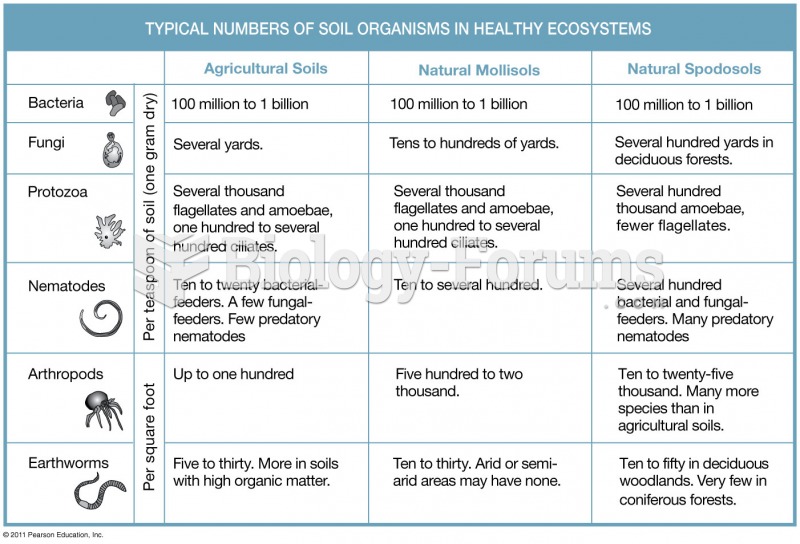|
|
|
There are approximately 3 million unintended pregnancies in the United States each year.
If all the neurons in the human body were lined up, they would stretch more than 600 miles.
Drug abusers experience the following scenario: The pleasure given by their drug (or drugs) of choice is so strong that it is difficult to eradicate even after years of staying away from the substances involved. Certain triggers may cause a drug abuser to relapse. Research shows that long-term drug abuse results in significant changes in brain function that persist long after an individual stops using drugs. It is most important to realize that the same is true of not just illegal substances but alcohol and tobacco as well.
Human stomach acid is strong enough to dissolve small pieces of metal such as razor blades or staples.
Green tea is able to stop the scent of garlic or onion from causing bad breath.







